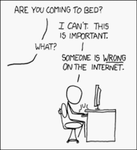New trader,
can I suggest next time you trade to reduce your pos size and have a wider stop loss and let your trade more breathing space. By reducing your pos size you reduce risk as i said before and then let your profit run MORE instead to cater for reduction in your position size.
Grey1
Let's take this example. Two traders, both with the exact same exit strategy, but a
different stop strategy. They both trade the same %risk on their account, defined by stop size x position size. We assume their account size is the same.
Trader A takes on a trade with 12 lots and 5 point stop. He gets stopped out and re-enters again with 12 lots and 5 point stop. He scales out half of his position at +25 and the other half at +50.
Trader B takes on a trade with 6 lots and a 10 point stop. He doesn't get stopped out, and scales out half at +25 and the other half for +50.
Who do you think ends up with most money at the EOD? I'm sure your complex formula's should be able to solve that simple question
😉 Both traders have the same risk, and the same exit strategy.
Trader A can re-enter the same trade 3 times (so he has 4 shots at it!), and still end up with more profit than trader B! All of that because he minimized risk by putting
his stops close. I can't think of any better example than this.
==> Cutting down position size is what books and theory will tell you to do. Practice will tell you to study price and a chart, and analyze where and when the best entry takes place. Take your time and wait for that entry. If you can't use tight stops, skip the trade.
Preservation of trading capital is the first, second, and third priority in trading.
Those who argue the other way are usually entering late, using a wider stop, and (see example) trading less size. All of which explains why most traders are losing more money in these markets, while there is another group of traders for who this volatility is a blessing.
Focus on that entry like a spider waits for it's prey. And only act when there is a convergence of most all of his signals before acting. Then pounce without hesitation and take home the prey. And if you can do so with staying comfortably in the middle of the web, why shouldn't you?


